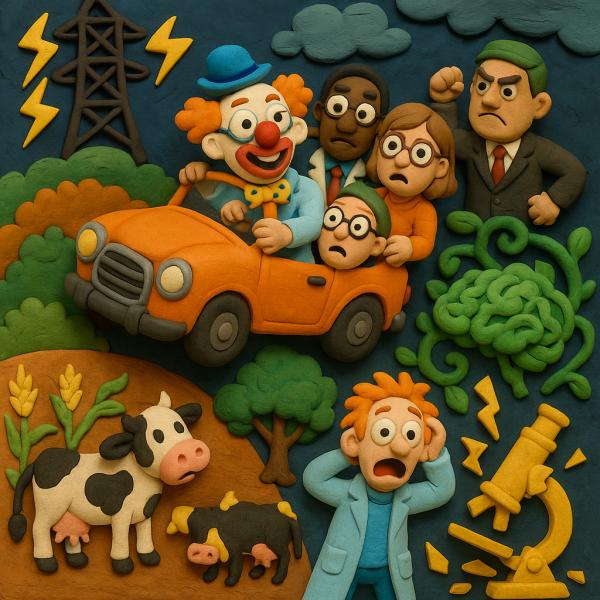
In our daily clown-car of current events, it is easy to lose track of what is essential or not. Take the outage of electrical power in Spain. Since I was unaffected, it passed quickly from living memory without any understanding of why it had happened or, selfishly, whether it might ultimately impact me. I was wrong.
“The case of the recent blackout in the Iberian peninsula has showed us something else, beyond the importance of stability. It exposed the two Achilles heels of every complex system operated by humans: tight coupling and limits to human comprehension. The addition of large number of “renewables” onto an old grid designed to run on AC generators has increased complexity — and thus vulnerability — beyond the point of human comprehension.”
From The Honest Sorcerer, The Two Achilles Heels of Complex Systems
I have long been a fan of a book called The Alphabet and the Goddess, which, pre-Internet, explains the rise of literacy and the end of the Goddess. (I can’t recommend it enough). So, I was captured by this current take on our declining literacy.
“This requires a longer view. Literacy is not just a skill, or a right, or a cultural inheritance. It is a complex technology—historically contingent, unevenly distributed, and neurologically fragile. To understand what’s at stake, we have to examine its origins, the struggles that shaped it, and the ecological niche it occupies in the mind.”
From After Literacy, How to Do Soul-Craft with State Tools
There is a belief that our burgeoning population will exceed the carrying capacity of the Earth. That concern, whether it is to be believed or not, will come into play as MAHA moves to make food are new medicine.
“The thing is, fossil fuels are only two-thirds of the climate problem. Even if we do quit them, we’ll never meet the emissions targets set by the Paris Agreement without addressing the other third. The challenge is food: what we eat, how we produce it, and the forests and other natural ecosystems we keep clearing to make room for more farms to make more food. And that’s mostly a land story about the relentless spread of crops and pastures that already cover two of every five acres of land on Earth, obliterating the wild landscapes that soak up carbon dioxide from the atmosphere. We have no idea how or when that story will end.”
It is not a screed about plant-based eating or food as medicine or the evils of meat-producing methane. It is a concern that our resources and land have a real limit. From The Atlantic, A Food Reckoning is Coming
The Trump Administration is arguing for “Gold-Standard” Science; unfortunately, gold is often in the eye of the beholder.
“On May 23, President Trump issued an executive order entitled "Restoring Gold Standard Science." … it sounds remarkably good, focusing on issues like reproducibility and conflicts of interest. While there were a few things that could be phrased better, when it comes to basic scientific practices, the language was remarkably reasonable.
So, why didn't we report on what appeared to be a rare bit of good news? I'd considered doing so, but the situation is complicated by the fact that the order is structured in a way that makes it very sensitive to who's responsible for implementing it, a situation that's subtle enough that I couldn't figure out how to handle it well. Fortunately, I only had to wait a week for a member of the Trump administration to show just how dangerous it could be and highlight its biggest problem.”
From Ars Technica, Analysis: Trump’s “Gold Standard Science” is already wearing thin



